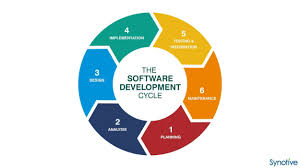Crafting a Comprehensive White Paper on Software Engineering Excellence
Introduction
Software engineering excellence is a multifaceted pursuit, requiring a blend of technical proficiency, problem-solving acumen, and effective communication skills. This white paper delves into the key skills that underpin software engineering excellence, drawing insights from both academic research and industry best practices.
Core Technical Skills
- Programming Languages and Paradigms:
- Proficiency in multiple programming languages (e.g., Python, Java, C++, JavaScript)
- Understanding of various programming paradigms (e.g., object-oriented, functional, procedural)
- Ability to learn and adapt to new languages and technologies
- Data Structures and Algorithms:
- In-depth knowledge of fundamental data structures (e.g., arrays, linked lists, stacks, queues, trees, graphs)
- Proficiency in algorithm design and analysis (e.g., sorting, searching, dynamic programming)
- Ability to optimize code for performance and efficiency
- Software Design and Architecture:
- Understanding of software design principles (e.g., SOLID, DRY, KISS)
- Ability to design scalable, maintainable, and resilient software systems
- Experience with architectural patterns (e.g., MVC, microservices, layered architecture)
- Database Systems:
- Knowledge of relational and non-relational databases (e.g., SQL, NoSQL)
- Proficiency in database design, querying, and optimization
- Understanding of database security and performance tuning
- Software Development Tools and Methodologies:
- Proficiency in version control systems (e.g., Git)
- Experience with software development methodologies (e.g., Agile, Scrum, Kanban)
- Familiarity with build tools, testing frameworks, and debugging tools
Soft Skills
- Problem-Solving and Critical Thinking:
- Ability to break down complex problems into smaller, manageable subproblems
- Analytical skills to identify root causes and potential solutions
- Creative thinking to explore innovative approaches
- Communication Skills:
- Effective written and verbal communication to convey technical concepts to both technical and non-technical audiences
- Ability to collaborate with team members and stakeholders
- Active listening skills to understand requirements and feedback
- Teamwork and Collaboration:
- Ability to work effectively in diverse teams
- Strong interpersonal skills to build positive relationships with colleagues
- Willingness to share knowledge and mentor others
- Continuous Learning and Adaptability:
- A growth mindset and a passion for learning new technologies and techniques
- Ability to adapt to changing requirements and technologies
- Staying up-to-date with industry trends and best practices
References
- University Research:
- ACM/IEEE Computing Curricula 2020: [invalid URL removed]
- Software Engineering Body of Knowledge (SWEBOK): https://google.github.io/eng-practices/
- Microsoft Engineering Culture:
- Trade References and Books:
- "Clean Code" by Robert C. Martin
- "The Pragmatic Programmer" by Andrew Hunt and David Thomas
- "Design Patterns: Elements of Reusable Object-Oriented Software" by Erich Gamma, et al.
Conclusion
Software engineering excellence is a dynamic and evolving field that demands a multifaceted skill set. By mastering both technical and soft skills, software engineers can contribute to the development of high-quality, reliable, and innovative software systems. Continuous learning and adaptation are essential to stay ahead in this rapidly changing industry.
Additional Considerations
- Ethical Considerations: Understanding the ethical implications of software development, including privacy, security, and fairness.
- Security Best Practices: Knowledge of security principles and techniques to protect software systems from vulnerabilities and attacks.
- Domain-Specific Knowledge: For specialized roles, domain-specific knowledge (e.g., healthcare, finance, or aerospace) can be crucial.
By incorporating these additional considerations, software engineers can further enhance their skills and contribute to the advancement of the field.



